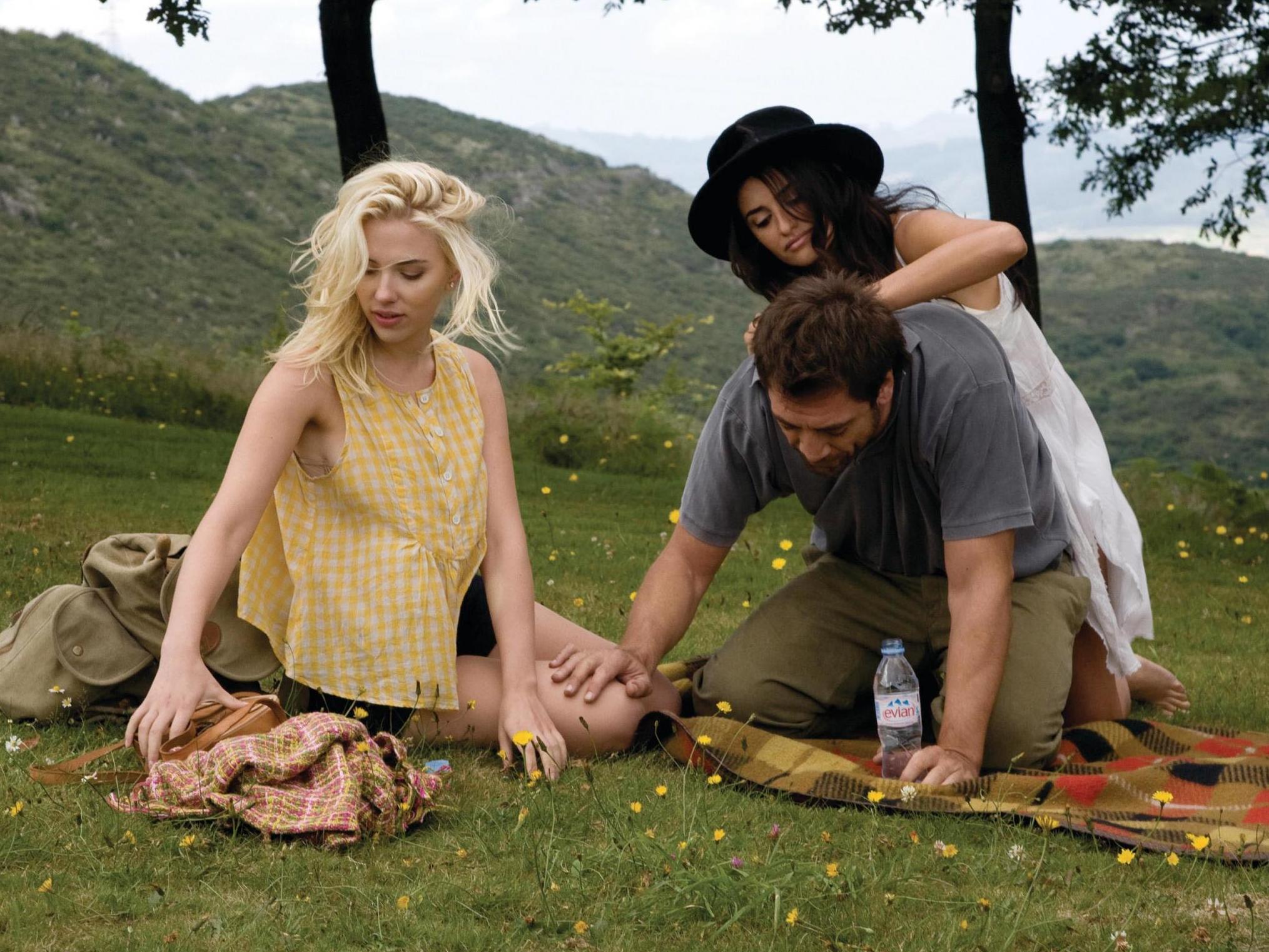The Independent's journalism is supported by our readers. When you purchase through links on our site, we may earn commission.
Virtual orgies and WhatsApp sex: How polyamorous people are navigating open love in lockdown
Lockdown has forced polyamorous couples into monogamous scenarios that go against their ideologies, writes Olivia Petter


Asa, 33, had been with her partner David for one year when lockdown struck. “We were together at the time and decided to continue living with one another so long as we could create space to stay in touch with our other lovers,” she tells me. Asa and David are in an open relationship with one another. They are also polyamorous. This means that not only do they share a desire for sexual relationships outside of their own, but that they also have meaningful relationships with multiple people at once.
The logistics of a polyamorous relationship vary from couple to couple. “I have one lover,” explains Asa, “and David has one person who he sees regularly but other lovers that he sees from time to time as well.” Typically, Asa and David would only see each other once or twice a week and the occasional weekend. But spending lockdown together has brought them closer to one another.
“At the start, we bought a tantric sex book that teaches couples to intensify their sex lives in just 28 days through meditation, words of appreciation, breathing exercises, and weekly love-making rituals lasting four to six hours.” They have been keeping in touch with other lovers via WhatsApp, and meeting others through virtual orgies. “We have gone to sex parties before, but not as a couple. When we saw that our favourite sex party Killing Kittens launched virtual events, I surprised David by buying two tickets for our date night – which was virtually interacting with hundreds of other people watching, enjoying other having sex – us included. It was held via Zoom.”
It’s not clear how many polyamorous people there are in the UK. According to one YouGov poll from 2015, 34 per cent of Britons believe polyamory to be “morally acceptable” while 39 per cent said they don’t think human beings are monogamous by nature. In the US, there is clearer data, with one study published in the Journal of Sex & Marital Therapy in 2017 suggesting that just five per cent of the American population identify as polyamorous, though up to 20 per cent have attempted some form of consensual non-monogamy in their lifetime. “Polyamory works for people who are happier with more than one partner and choose to get their needs met in a variety of different places,” explains psychologist and sex educator Dr Lori Beth Bisbey. “It can benefit people who have high self-esteem and are confident in their place in each of their relationships.”
For the first 50 days of quarantine, I stayed at my girlfriend Megan’s house where she lives with her other boyfriend
But lockdown has forced polyamorous couples around the world to disrupt the dynamics of their relationships in order to comply with isolation measures. Some, like Asa, have had to choose a “primary” partner to live with, and thus risk becoming more detached from their other partners, while others have had to isolate with their partner and their partner’s partner.
That was the case for comedian and podcaster Billy Procida, 30, who spent the first 50 days of quarantine in New York City living with his girlfriend, Megan, and her other boyfriend, Kyle*. “We don’t really know each other,” Billy says of Kyle. “It felt like a roommate relationship. But honestly, it was fine. The only tension was that I’m a little messy sometimes.” Billy, who normally lives in Brooklyn, has since moved in with his mother to give Megan and Kyle some space. “She comes up here for a few days and I spend a couple of nights down there. We’re making it work.”
Because Megan, Kyle and Billy began isolation together, they have refrained from seeing their other partners in order to prevent spreading Covid-19 between households. This has intensified things between Billy and Megan. “I’m seeing her way more than usual,” he says. “Our other sexual partners are all moving to sexting or on pause. So my relationship with Megan has gone from 0 to 100, but it’s a good thing because it’s forced us to communicate better about when we need alone time and when we need support.”
As illustrated by Billy and Megan, being in lockdown has imposed a degree of monogamy on polyamorous couples. For some couples, this might work in the short-term. But in the long-term, it could create difficulties as it goes against the very core of their ideologies regarding relationships. “It is particularly difficult for polyamorous people to suddenly not be able to see the partners they regularly see,” says Dr Bisbey. Not only will they miss the physical contact with other people, but those who are living with one partner risk making their other partners envious. “It might also be difficult spending all your time with just one partner because it puts pressure on that relationship to meet the needs that your other partners have been meeting,” she adds. “And of course, not being able to see your lover for an indefinite amount of time can be frustrating and cause anxiety.”
It might also be difficult spending all your time with just one partner because it puts pressure on that relationship to meet the needs that your other partners have been meeting
The inability to travel abroad has also made things difficult for New York native Daniel Saynt, 37, founder of the NSFW (New Society for Wellness) sex club. “I was at a music festival in Sint Marten when the virus struck. I flew out with my partner, Moses, for my birthday expecting to be there for a week. We ended up trapped for almost three months.” Previously, Daniel and Moses would only see each other once a week, and while spending so much time together has strengthened their relationship, it has left Daniel feeling unfulfilled. “I miss my other partners and a sex life that doesn’t feel so limited,” he says.
The nature of the pandemic has changed the way Daniel communicates with his other partners. When they might’ve once sent illicit imagery to one another, now, they find themselves enjoying deeper emotional discussions about how they are coping in lockdown, which Daniel puts down to exacerbated anxieties about not knowing when they will see one another again. Daniel plans to return to New York in June; Moses will stay put. “I’m glad to be getting back to rekindle things with my other partners. But I’m also saddened knowing I’m leaving someone who’s really been supportive through all of this.”
While polyamory doesn’t exactly lend itself to the restrictions forced upon us in a pandemic, there are ways to maintain relationships with multiple partners. One tip, says Dr Bisbey, is to make as much time to see them virtually as you normally would if we weren’t in lockdown. Don’t just stick to FaceTime, either. “Connect in a variety of ways,” suggests Dr Bisbey. “Text them, phone them, go for a social distancing walk if you can. Send each other presents in the post, like something with your scent on it, or ask their roommate to give them a hug from you.”
Crucially, she says, be kind and be patient. No matter your relationship status, these are incredibly difficult and distressing times. Being there for a romantic partner is needed now more than ever before, regardless of how many you have.
Join our commenting forum
Join thought-provoking conversations, follow other Independent readers and see their replies
Comments
Bookmark popover
Removed from bookmarks